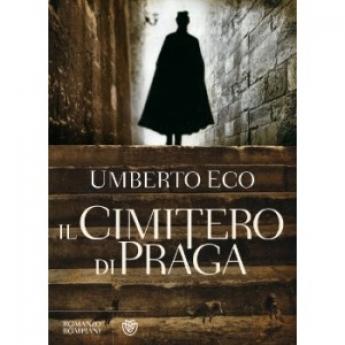Book Review: 'The Prague Cemetery' by Umberto Eco

From the Los Angeles Times
"Bookish digressions and odd cultural details are two reasons why we read Umberto Eco. He takes great pleasure in showing readers the monastic care of books in "The Name of the Rose," the kabbalah in "Foucault's Pendulum" and day-to-day life in Mussolini's Italy in "The Mysterious Flame of Queen Loana." Without such layers, without his plunging into the minutiae of other eras, it just wouldn't be an Eco novel.
Such details and digressions are also crucial to his latest, "The Prague Cemetery," maybe even more than in any of his other novels.
Why? Without all the learned trivia, Rabelaisian caricatures, comic asides and bizarre comments, the book's subject — the creator of "The Protocols of the Elders of Zion," the forged document purporting to reveal a worldwide Jewish conspiracy — would be especially difficult to read. This book is less a pleasing romp in the past than a forced march alongside some wretched characters."
Read the whole book review by Nick Owchar
>>> Book Review: 'The Prague Cemetery' by Umberto Eco
Umberto Eco’s new novel in Italian, English, French, and German
Umberto Eco on ILAB.org
>>> Bibliofilia e bibliomania - Or: The Fascination of Rare Books and Autographs
>>> A Bibliophile of huge Ec(h)o. By Umberto Pregliasco
>>> "Caro Onomonimo ... speriamo di non liberarci dai libri". By Umberto Pregliasco
